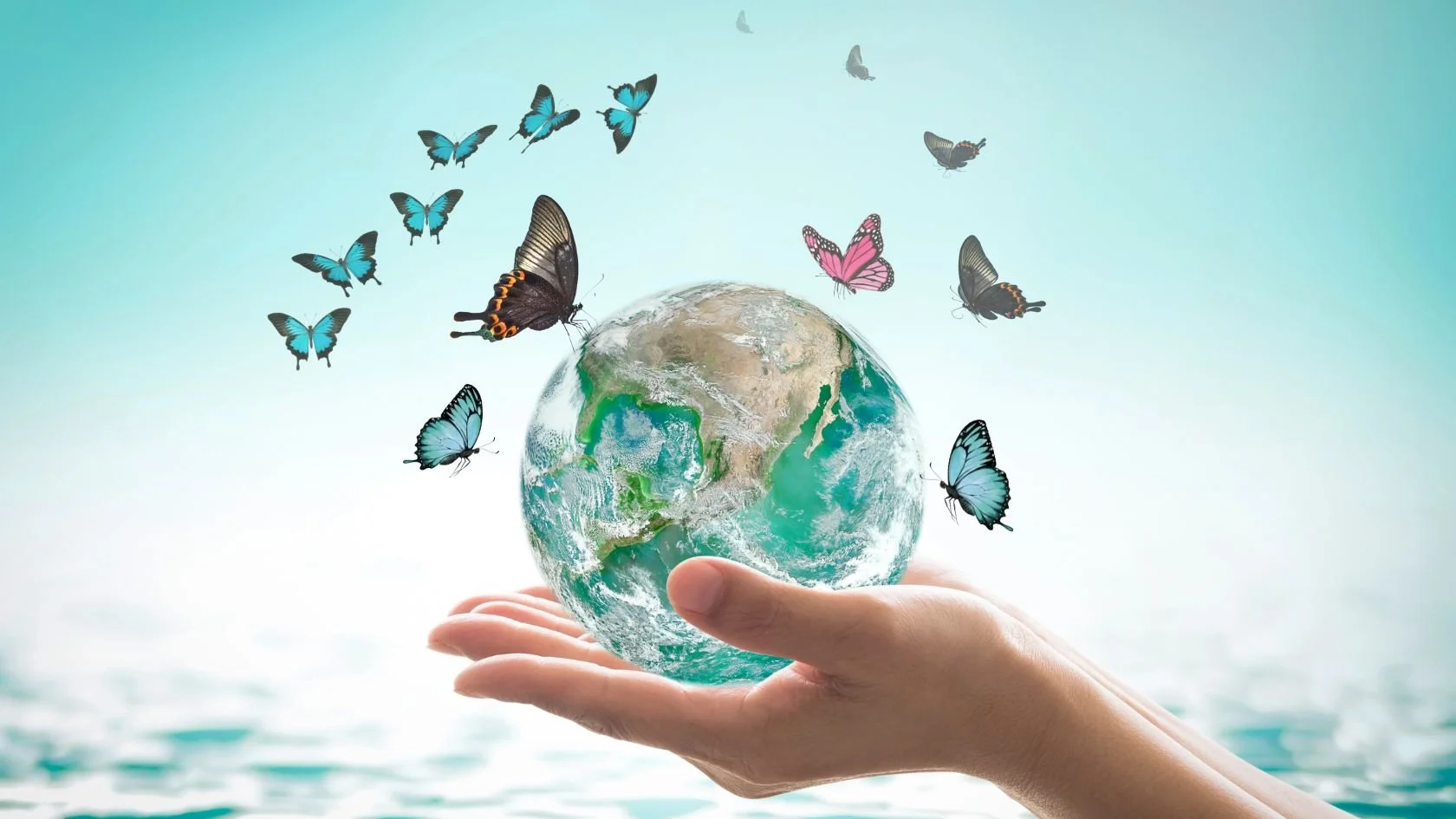Why Ecosystem Growth Channels Matter for Lifestyle Brands in 2026
Everyone’s talking about ecosystem growth channels. Let’s look at what they are and how lifestyle brands can use them to win in 2026.
Everyone knows the road ahead in 2026 is shaping up to be a doozy of a year for marketing.
Between generative search, splintered audiences, and the death of single-platform dependence, smaller lifestyle brands are struggling for the attention they need to get ahead.
So what exactly is an ecosystem growth channel and why is everyone so excited about them? In this post we’ll look into what they are, why they matter, and how can lifestyle brands can build a marketing strategy for 2026 that incorporates the best of what they have to offer.
What Is an Ecosystem Growth Channel?
In plain English:
An ecosystem growth channel is any marketing or distribution pathway that thrives because of the ecosystem around it, not because of one isolated platform.
It’s the opposite of siloed marketing.
It’s not:
“We post twice a week on Instagram.”
It’s:
“Our customers discover our brand through social content, PR and reviews, creators, AI search engines, Pinterest, email, community events, and retailer collaborations - all of which fuel each other.”
An ecosystem growth channel is:
multi-layered
cross-pollinating
platform-agnostic
trust-building
visibility-compounding
self-sustaining over time
For lifestyle brands that produce candles, beauty, clothing, skincare, and home décor, this approach mirrors how people naturally discover and fall in love with brands: repeatedly, across multiple touchpoints, through story-rich environments.
Ecosystems let you build all of that in public.
Why Ecosystem Growth Channels Matter Even More in 2026
2026 is the year everything becomes interconnected whether brands like it or not. A few forces driving this:
1. Generative AI overtakes traditional search.
Customers are asking questions in ChatGPT, Perplexity, Claude, and Google’s AI Overviews.
Your brand needs to be the answer.
2. Single-platform strategy dies.
Instagram engagement dips? TikTok goes sideways? Your ecosystem keeps you afloat.
3. Trust becomes the currency.
Reviews, UGC, longform content, founder visibility, and community matter more than ever.
4. Communities become revenue engines.
Shared routines → shared identity → shared loyalty → shared spend.
Ecosystem channels create stability, visibility, and credibility across every stage of discovery.
Elements of Ecosystem Growth Channels for Lifestyle Brands
1. AI Visibility Ecosystems (AEO, GEO, AIO)
Your content shows up across answer engines—not just Google.
One blog post → fuels Google → fuels Perplexity → fuels ChatGPT → fuels Pinterest searches → fuels press research → fuels UGC.
That’s Share of Model (SoM) at work: What it is: SoM tracks how often a brand is mentioned by AI models relative to its competitors, indicating its "visibility" to AI.
How it's used:
Competitive analysis: See how your brand's AI perception compares to others, according to different LLMs like ChatGPT, Gemini, or Llama.
Brand positioning: Analyze and track positive and negative brand associations identified by LLMs to understand positioning and identify opportunities.
Content optimization: Use insights to adjust website text, image assets, and keyword strategies to improve how LLMs perceive and recommend your brand.
Tools: Companies like Jellyfish have launched platforms, such as the Share of Model™ Platform, to help brands analyze and manage their SOM.
2. Creator + Customer Flywheel
Creators share your product → customers mimic → you feature UGC → creators see it and want to join → more customers pile in.
Small creators = big loyalty.
3. Memberships & Inner Circles
This is not a fad, it’s your moat. We’ll use a fictional candle brand called “Brand New Candle Co” as an example. For this we’re thinking:
Seasonal scent club
Early access drop list
First-burn ceremonies
Candle-care classes
Community gifting circles
Your brand becomes a space, not just a store.
4. Multi-Path Content Engines
One idea → six formats → endless circulation:
IG carousel
IG Reel
TikTok
Blog post
Pinterest pin
Email segment
Your message stops behaving like a post and starts behaving like a system.
5. Cross-Brand Collaborations
The fastest ecosystem builder. Think:
Candle brand + ceramicist: match striker collab
Beauty brand + florist: self-care bouquet kit
Kids clothing brand + bakery: morning playdate box
Jewelry brand + boutique hotel: “mini-museum” trunk show
Your reach expands because your worlds interconnect.
PR is the Oxygen that Nurtures and Fuels Your Ecosystem Growth Channel Strategy
No ecosystem is complete without Publicity and Public Relations. PR is the credibility infrastructure, the reputation engine, and the fuel source that makes the entire growth loop stronger.
1. PR Builds Authority (for Humans and AI)
Press mentions give your brand legitimacy. Lifestyle consumers want it.
AI models require it.
When Brand New Candle Co. gets featured in Apartment Therapy, Well+Good, Real Simple, or local publications, that coverage signals:
expertise
relevance
trustworthiness
editorial authority
These signals directly influence:
Google rankings
AEO performance
AI model citations
press writers researching future pieces
retailer decision-making
customer confidence
PR is no longer optional. It’s foundational.
2. PR Establishes the Narrative Backbone
Your ecosystem’s stories start in PR.
Founder origin stories, sustainability practices, and scent inspiration becomes fuel for:
blog posts
podcast interviews
TikTok storytelling
email sequences
UGC prompts
seasonal campaigns
product education
PR gives your brand a central story the ecosystem can orbit and grow around.
3. PR Drives Top-of-Funnel Discovery
Algorithms show your content to people already in your orbit.
PR introduces you to people beyond the algorithmic bubble.
A single press hit can drive:
search queries
inbound wholesale requests
creators asking for product
customers searching for reviews
AI engines pulling your brand into answers
It jumpstarts every other channel.
4. PR Catalyzes Collaborations & Partnerships
Editors, boutique owners, creators, and event organizers watch the press.
Strong PR increases Brand New Candle Co.’s attractiveness for:
collabs
wholesale placement
podcasts
creator gifting
speaking opportunities
seasonal spotlights
Press = credibility. Credibility = opportunity.
5. PR Strengthens Every Other Channel’s Output
Press helps the whole ecosystem perform better.
Press → boosts search → fuels AEO → drives more creators → increases UGC → elevates trust → encourages more press.
It's a compounding loop.
6. PR Makes the Brand More Resilient
If Meta decides to misbehave (again), your PR footprint keeps the ecosystem alive.
Press lives everywhere: on Google, in AI models, on Pinterest, in blogs, and in future editorial roundups.
How Brand New Candle Co. Can Add Ecosystem Growth Channels to Their 2026 Playbook
Let’s apply the Ecosystem strategy to our fictional lifestyle brand, Brand New Candle Co., a small brand ready to stand out in a crowded market.
1. Build a Search + AI Visibility Layer
This is your foundation.
Brand New Candle Co. should create:
evergreen blog content
AI-friendly FAQs
“how to” guides
scent stories
product education
care and safety posts
comparison posts (soy vs coconut wax, etc.)
Examples of AEO-ready topics:
“How to prevent tunneling in soy candles”
“Best clean-burning candles for winter 2026”
“Why coconut-apricot wax burns longer”
These feed Google, ChatGPT, and every other answer engine hunting for authoritative content.
2. Develop a Micro-Creator Network
A 2026 must! Brand New Candle Co. should connect with:
nano creators
bedroom creators
home décor micro-influencers
clean living bloggers
aesthetic TikTokers
lifestyle photographers
Offer:
free product bundles
story-driven briefs
long-term partnerships
co-created rituals
Keep your circle engaged and excited.
3. Turn Customers Into a Ritual-Based Community
Lifestyle brands thrive on routine. Brand New Candle Co. can create:
“First Burn Friday” where customers share their new candles
Seasonal scent drop clubs
A digital scent diary for superfans
Monthly “Candle Reset Night” livestreams
Behind-the-pour founder stories
People want to feel in on the process.
4. Build Multi-Platform Content Loops
One story, many shapes. Example:
Winter scent launch → blog → TikTok → IG → email → Pinterest → Google AI → UGC → press inquiry → creator content → blog update.
That’s a flywheel.
That’s your ecosystem.
That’s the whole point.
5. Add Foundational Collaborations
2026 is all about co-creation.
Brand New Candle Co. could partner with:
ceramicists (limited-edition jars)
apothecaries (herbal blends)
hotels (signature lobby scent)
local boutiques (gift sets)
stationery brands (matchbooks!)
Each collab adds one more spoke to the wheel.
6. Launch a Membership or Inner Circle
One of the strongest ecosystem channels for any candle brand.
Ideas:
“Scent of the Month Club”
Quarterly Ritual Boxes
Founder’s Club: Behind-the-Scenes Access
Early Access Drops
Members-Only Seasonal Scents
No algorithm can take this away from you.
Why Ecosystem Channels Future-Proof Lifestyle Brands
Imagine 2026 rolls in and Meta does something very… Meta, or TikTok gets banned in the US.
Your engagement tanks.
Your Reels views plummet.
You lose your footing.
Your audience evaporates.
Most brands panic.
Brands with ecosystems?
They barely flinch.
Because discovery shifts.
Consumer touch points multiply.
And your presence stays layered, visible, and reinforced.
An ecosystem is an insurance policy and a growth engine.
If lifestyle brands want to win in 2026, they need to think less like content creators and more like ecosystem builders.
Brand New Candle Co. isn’t just selling candles.
They’re selling rituals, identity, moments, memoires, sensory experiences… a whole ecosystem.
And the brands who understand that, who build multi-channel, multi-touchpoint growth loops, are the ones who stand out in search, in AI engines, in communities, and in consumer hearts.
Think of your Ecosystem Growth Channel as an insurance policy that protects you from wild swings in the economy, social media turbulence, and supply chain issues.
FAQ
What is an ecosystem growth channel?
An ecosystem growth channel is a marketing pathway that grows because it’s connected to a larger network of channels—not because it stands alone. Your PR, search content, AI visibility, community, creators, and collaborations all work together to compound reach, trust, and discovery.
Why are ecosystem channels important for 2026?
Because consumers are searching across multiple platforms—Google, ChatGPT, Perplexity, TikTok, Pinterest—and expecting brands to show up consistently. Ecosystems let your brand stay visible, credible, and agile, even when algorithms shift.
How does PR fit into an ecosystem strategy?
PR creates the trust, authority, and editorial footprint that strengthens every other channel. Press mentions feed AI engines, boost SEO, attract creators and retail partners, inspire collaborations, and provide narrative fuel for your content.
What role does AI visibility (AEO/GEO/AIO) play?
Generative engines pull from brands that publish authoritative, educational, trustworthy content. When your brand creates evergreen blogs, FAQs, how-to guides, and press-driven stories, AI models are more likely to surface you in answers.
How can a small lifestyle brand use ecosystem channels?
A candle brand like Brand New Candle Co. can build ecosystems with:
seasonal scent storytelling
micro-creator partnerships
ritual-based community moments
cross-brand collaborations
evergreen blog topics
a vibrant email list
PR placements in décor, lifestyle, wellness, and gift publications
Do small lifestyle brands really need PR?
Short answer: yes. Long answer: very much yes. PR is one of the strongest credibility and discovery engines available to small brands. It drives trust signals, supports AEO, and gives your ecosystem a backbone.
What content helps with Answer Engine Optimization?
AI engines love:
FAQs
“How to” guides
Product comparisons
Seasonal educational content
Founder stories
Press citations
Community rituals
UGC that gets reposted
What is the simplest way to start building an ecosystem?
Start with:
One evergreen blog post per month
One PR pitch per month
A micro-creator seed list
A recurring community ritual
A cross-brand collab per season










